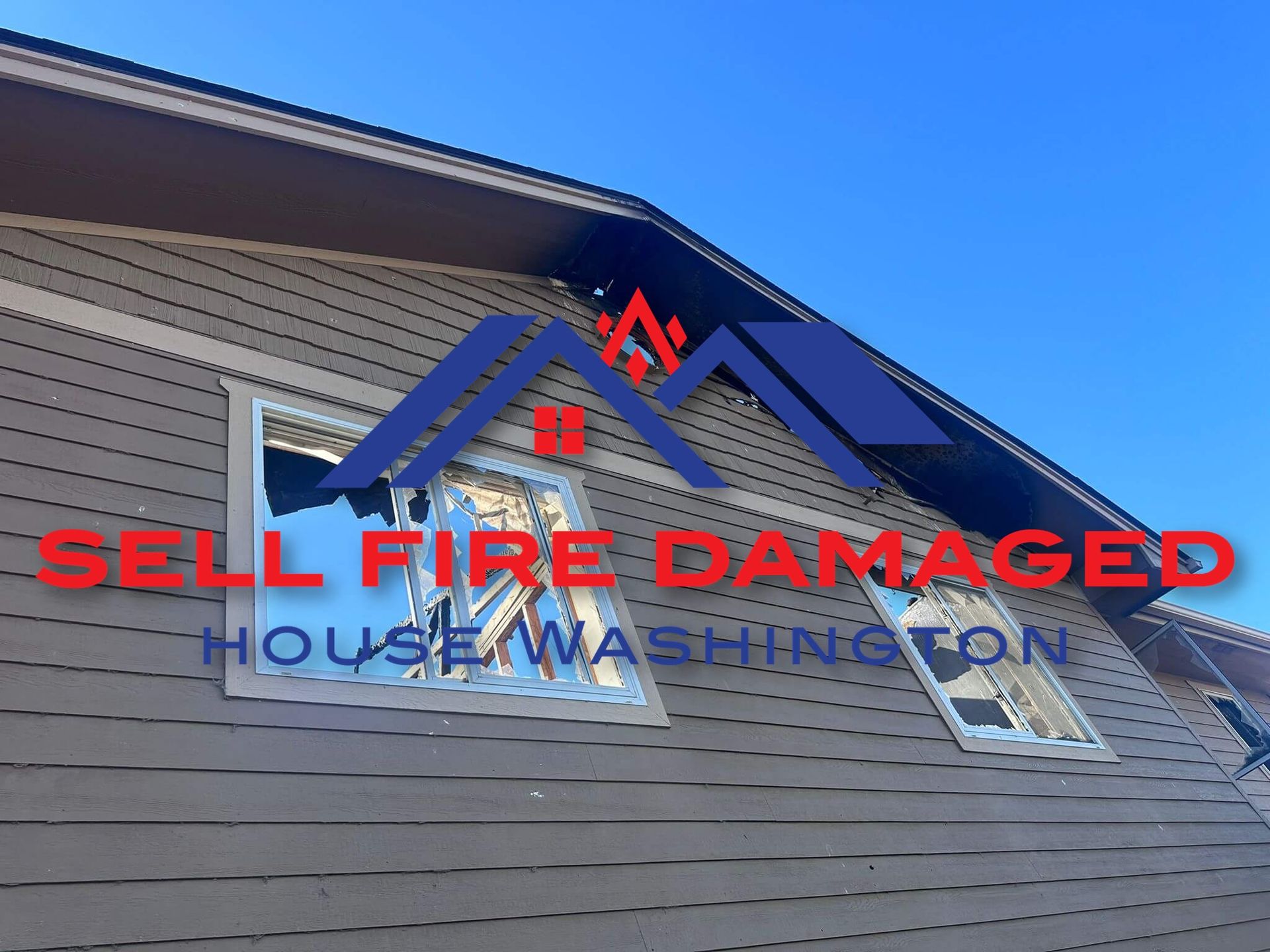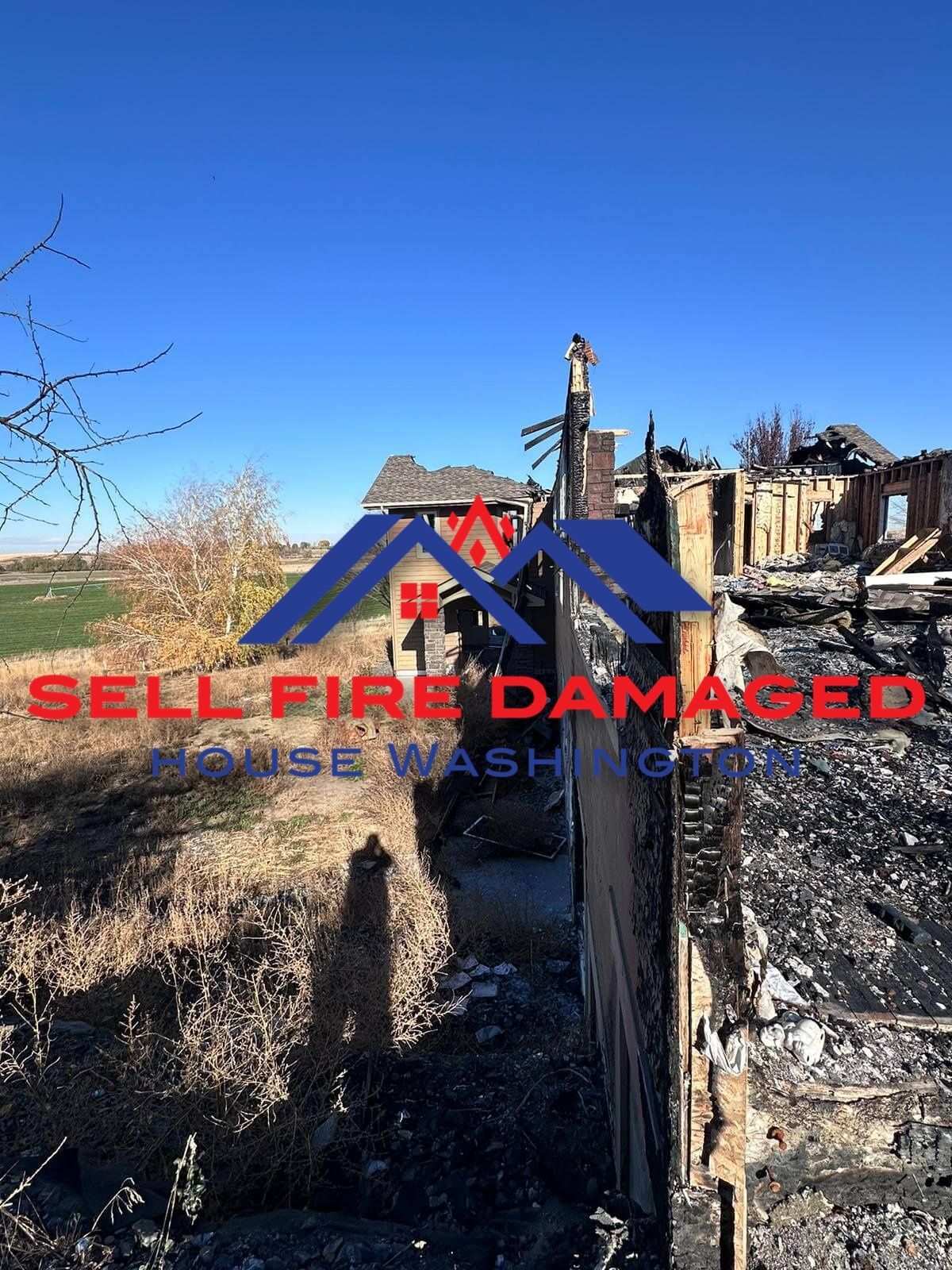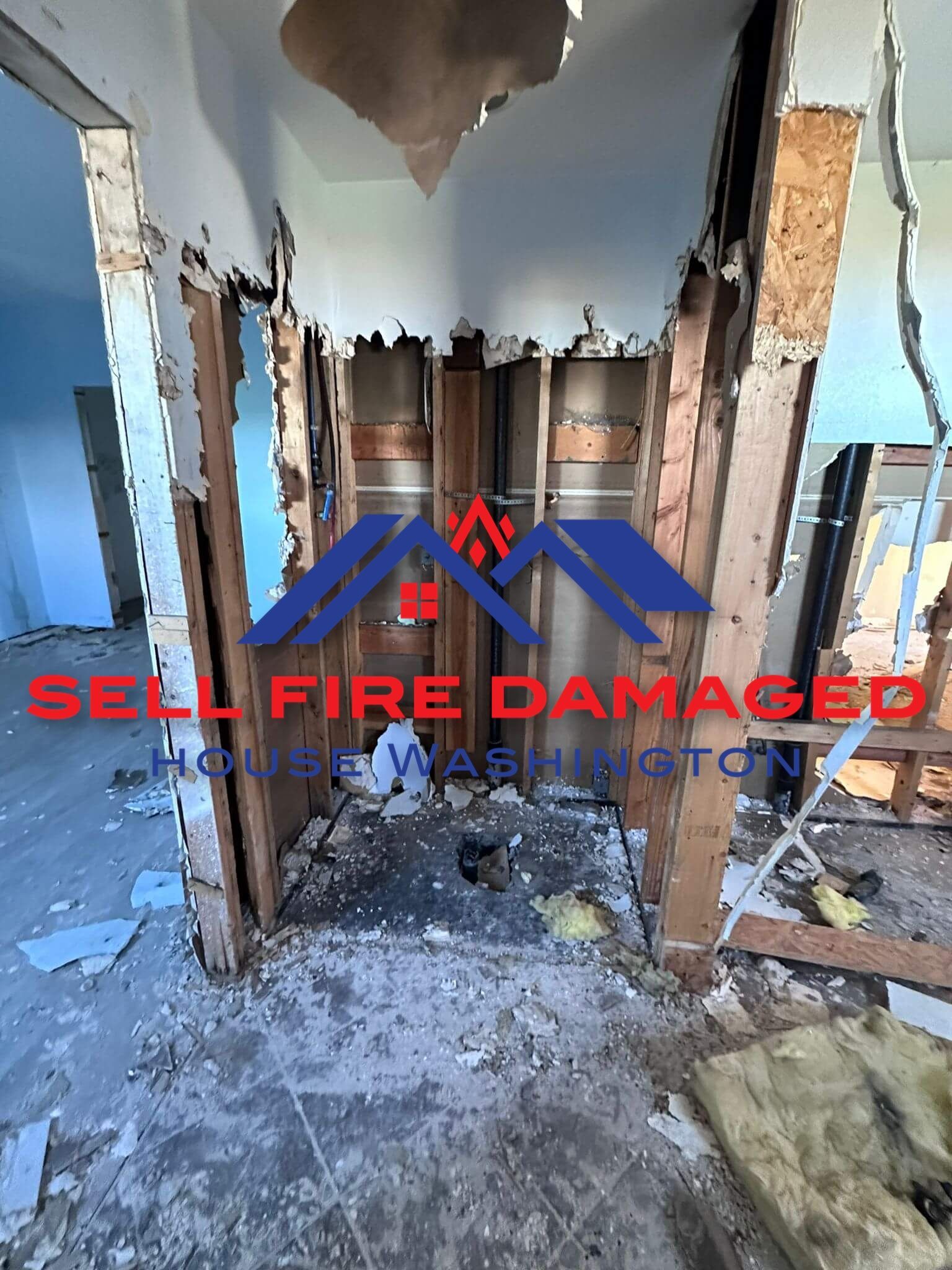Financial Assistance After A House Fire In Washington: Who To Turn To
Published on December 22nd, 2024
Lucas Sanders
AUTHOR
Free Offer Form
Financial and disaster assistance of any kind can be a huge support to survivors.
Aside from giving victims immediate needs like hot meals, funds can also
help them get back on their feet. Survivors can budget their assistance for long-term needs like additional consumables and clean clothes.
Agencies like FEMA can only help homeowners if their state declares a disaster in the area. However, others, like the Red Cross, can still offer individual cases the necessary resources.
Dealing with a House Fire Aftermath In Washington
It can be hard to immediately start reconstruction after house fire, especially if the flame destroyed your primary shelter or if you lost almost everything.
However, there are actions you can take after the disaster to start your journey to recovery.
Immediate Actions Post Fire
You might be in shock after experiencing a house fire. However, there are some house fire recovery steps you'll need to start taking to answer your immediate needs.
After ensuring all the survivors are okay, below are other things you should do.
Engaging with Your Insurance Provider
Contact your insurance company and start a claim. You can even ask your agent if they can issue an advance for "Loss of Use" from your policy to cover food, medicine, and other expenses.
The insurance agent can also help you secure your property and contact restoration companies that can fix the disaster-caused damage.
They may even connect you with a real estate agent to find shelter in the meantime.
Arranging Temporary Living Accommodations
You can first see if you can seek temporary shelter from your family or friends. If that's not an option, you can turn to local disaster relief services.
Try to visit organizations like the American Red Cross, Salvation Army, or potentially United Way since they can provide temporary housing assistance through open shelters and other connections.
The Consequence of Financial Aid
Survivors know that it takes a lot of money to recover from disasters.
When you receive funds, keep the receipts.
This is even more important if you're dealing with an insurance company, since how much you're spending can be deducted from how much they'll give you to rebuild your house.
Options for Financial Aid In Washington
Disaster recovery costs money — that's why it's highly recommended that homeowners have insurance to help them get back on their feet.
After any major disaster, you'll need funds for things like food, clothing, medical care, and temporary housing.
However, it's still possible to ask for help after house fire without insurance, thanks to nonprofit organizations and charities.
Aid from the Red Cross
The Red Cross is well-known in the field of disaster assistance since they typically visit sites of disasters within hours.
However, they also support isolated cases, such as house fires.
Aid Services Offered
The American Red Cross is probably most known for its disaster assistance programs — and according to their website, most of the disasters they respond to are house fires.
The organization gives emergency assistance after the disaster, such as financial assistance.
When dealing with a community struck with disaster, they also work with the local government and other agencies to implement recovery strategies.
They can even continue to give financial assistance to those who need more help in the long term.
Application Process for Aid
Everyone is eligible to ask for help from the American Red Cross.
If you need immediate assistance, simply contact or visit your local Red Cross or find open shelters near you.
Their website helps you search for the nearest locations. They can also give you the contact number of the Regional Headquarters in your area according to your ZIP code.
Assistance from FEMA
The Federal Emergency Management Agency (FEMA) is the lead agency of the federal government that offers disaster assistance.
Requirements for Eligibility
The President can declare Individual Assistance for specific damaged areas after a major disaster. To be eligible, you'll need to live in those areas.
You can confirm your qualifications by answering a few questions in the "Let's Get Started" part on the FEMA home page.
However, even if you're not eligible for Individual Assistance, FEMA is partnered with several organizations like the Salvation Army, which can visit you instead.
FEMA also works with the US Small Business Administration to offer low-interest disaster loans to cover disaster-caused damage.
Procedure for Application
You can apply for disaster assistance through their website. Below are the basic steps to expect when applying for help from FEMA:
- Create a Login.gov account.
- Prepare personal information — such as email address, home and mailing address, phone number, Social Security Number, bank account, and insurance company information.
- Fill out and send the application form. Make sure you save your Application ID since you'll need it whenever you talk with FEMA.
D-SNAP Food Aid
The Disaster Supplemental Nutrition Assistance Program (D-SNAP) is a program a state must request and receive approval from the USDA's Food and Nutrition Service (FNS) to operate.
Requirements for Qualification
If you're currently a SNAP client, you can still be eligible for a supplement if you meet these conditions:
- You get benefits that are less than the monthly maximum
- You have losses from a disaster
But if you're not a SNAP client, you can be eligible for D-SNAP if you've experienced these disaster-related expenses:
- Business or home repair
- Temporary housing/evacuation/relocation expenses
- Disaster-related injury (including funerals)
- No access to income because of the disaster
- Food loss after a disaster
Process for Application
You'll have to wait for state agencies to release information through the local media about how to apply, what the days of operation are, and how to know if you're eligible for D-SNAP.
Additional Local and Federal Aid Initiatives
The US Small Business Administration can offer low-interest disaster loans to survivors in need. This applies to businesses, non-profits, homeowners, and renters.
Meanwhile, the Salvation Army can give direct assistance in an emergency by providing material and financial relief.
Feeding America has a network of food banks nationwide that help those who need it temporarily. You can check the nearest food bank through their website.
If you have pets that fled or got lost during the disaster, the
Humane Society and PetFinder can help bring them back.
Exploring Disaster Service Agencies In Washington
Disaster service agencies like FEMA are equipped to respond to disasters nationwide. They give financial and emotional support to the survivors they visit.
They can also relocate victims to a safer shelter until they can return to their homes or find a new place to live.
Aid Provided by These Agencies
Disaster service agencies like Convoy of Hope typically target large-scale disasters. However, there are also agencies like the Red Cross that provide emergency assistance to individuals.
Regardless, these agencies give financial and material relief. They can also help direct you to other initiatives and give additional resources to help you in disaster recovery.
Procedure to Seek Assistance
If you need immediate assistance, these agencies have hotlines you can call. You can also visit their local branches to get in touch with volunteers or staff.
If your whole community has been affected by house fires, you most likely won't need to contact any organization yourself. Instead, wait for instructions on how you can receive help.
Practical Aspects

Survivors of disasters can rely on agencies to provide them with much-needed resources to help them recover.
Feasibility of Program Applications
Not all disaster assistance programs cater to individual house fires. For instance, FEMA and D-SNAP programs only apply to areas that have experienced disasters declared by the state government.
Meanwhile, non-profit agencies like the Red Cross can offer resources and support even to individual cases. As such, you can visit their office or call them through the phone to ask for help.
Before seeking assistance from different agencies, ensure they support individual cases first.
Timeliness and Adequacy of the Aid
Organizations and agencies aimed toward emergency management and disaster recovery consist of staff and volunteers who can assist just a few hours after the disaster.
They also have training and certification in medical care, such as first aid and CPR. The Red Cross even has classes for babysitting and child care so responders can help affected families with children.
Aside from immediate food and money support, agencies can also offer emotional support.
Dependability and Effectiveness of These Programs
Some organizations don't stop at just the emergency or immediate aftermath phase. Instead, they can also give more disaster assistance to families that need long-term help.
They can direct victims to other agencies that can offer more assistance. For instance, the US Small Business Administration can give low-interest loans to those affected by disasters.
Aid Resources and Support In Washington
Whether you've experienced a house fire or other disaster, this section will discuss information on agencies you can contact to ask for resources.
Direct Links for Assistance Applications
To make it easier to look for help in emergencies after disasters, here are direct links that survivors can check:
- Find the nearest open shelters in your area.
- Check the nearest local Red Cross in your location.
- View the application process or check your status on the Disaster Assistance website under FEMA.
- Read the program description and general requirements for D-SNAP.
- You can refer to the SNAP State Directory of Resources for more state-specific information.
- Look for your local Salvation Army and how they can help.
Relevant Organizations' Contact Information
If you find yourself in a difficult time and need to reach out for emergency assistance, below are contact information that may be useful:
- Red Cross hotline - 1 800 RED CROSS ( 1-800-733-2767)
- FEMA hotline - 1-800-621-3362
- FEMA email - AskIA@fema.dhs.gov
Salvation Army hotline - 1-800-SAL-ARMY
Personal Experiences
Disasters always leave survivors who can tell the tale. Here are a few stories of survivors who were given resources by agencies and how it helped them on their road to recovery.
Success Stories of Aid Recipients
There are Red Cross house fire stories on their website. One story is of Cody and his family, who lost almost everything when their house burned.
When the Red Cross responders arrived, they gave them toiletries and financial assistance that covered their immediate needs while they sought shelter elsewhere.
Another story is from the Salvation Army. Houston Morrow is a Milwaukee resident whose house burned in the middle of winter, and he lost all his belongings. On top of that, he fell and hit his head while trying to escape.
He asked for assistance while he spent 3 months getting back up to full health at the hospital.
Once the organization received the necessary documentation, two case managers personally gave him a coat, boots, two pairs of jeans, two packs of t-shirts, and a pack of socks.
They also gave him additional resources for housing and emotional support.
The Salvation Army Emergency Disaster Services even gave Morrow a voucher to help him get back on his feet.

Frequently Asked Questions
Recovering from any disaster is tough. After all, you'll need to find resources like new shelter and clothes. Learn more about getting assistance after disasters below.
What Is the Role of the Red Cross in Providing Financial Assistance After a House Fire?
The Red Cross provides financial assistance that will cover a family's basic needs — like food and clothes. The organization can also work one-on-one with victims to help them navigate the next steps.
When you rebuild your home, they can even help you buy smoke alarms if you can't afford them yourself yet.
How Does FEMA Provide Financial Assistance to Victims of House Fires?
FEMA can provide financial help through the Individuals and Households Program (IHP), where victims can receive a combination of financial and direct assistance.
Homeowners must prove to FEMA that the damaged house is their primary residence before being considered for Home Repair Assistance, Replacement Assistance, or Permanent Housing Construction.
IMPORTANT: FEMA will only provide assistance to those who were affected by a declared disaster.
How Can I Apply for D-SNAP Food Assistance After a House Fire?
First, check if you are eligible to apply for D-SNAP food assistance programs. Similar to FEMA, D-SNAP assistance can only be received by victims of declared disasters.
State agencies will release information through the local media and press. The information will include pertinent details like the application process, days of operation, and eligibility criteria.
What Other Local and Federal Aid Programs Are Available for House Fire Victims?
The Red Cross and Salvation Army provide disaster recovery support for fire victims in isolated cases. Catholic charities, secular charities, and other non-profit organizations can also offer survivors more resources.
For house fire victims of a declared disaster, programs from FEMA and other agencies can help you recover.
How Reliable and Effective Are These Financial Assistance Programs?
Disaster recovery programs are very helpful to both homeowners and renters alike. That's because responders can give them enough money to cover basic needs like clothes, food, and medicine.
Agencies can give more support by
working one-on-one with the family regarding their next steps or giving them material help rather than just money.
Conclusion
Experiencing a house fire is a traumatic experience. Fortunately, agencies like the Red Cross can give survivors resources and provide shelter while they try to build their lives back up.
These agencies are trained to respond to disasters within just hours of the event.
However, ensure that the organization you're asking for help caters to individual cases. That's because some of them, such as FEMA, only visit communities that have experienced disasters.
Remember to also call your home insurance provider since they can help you recover too.


